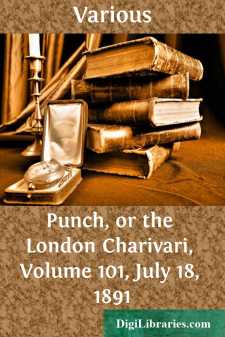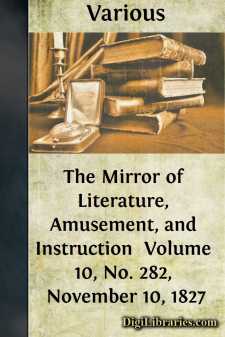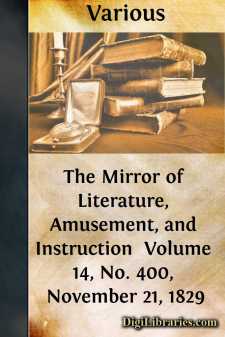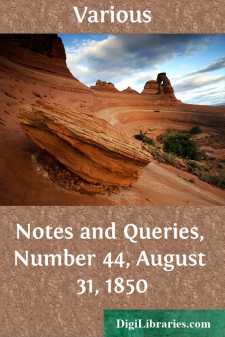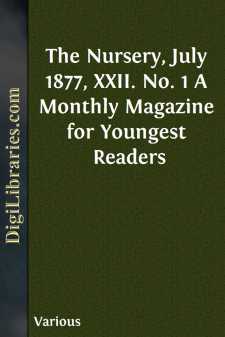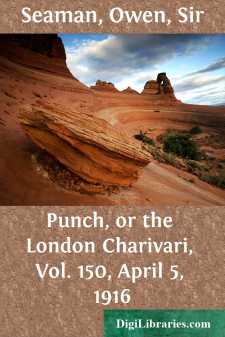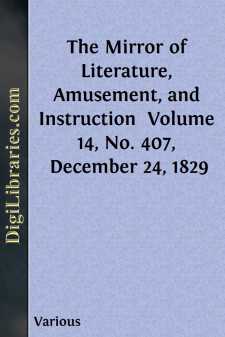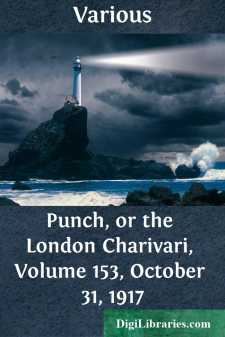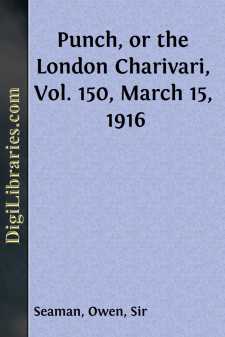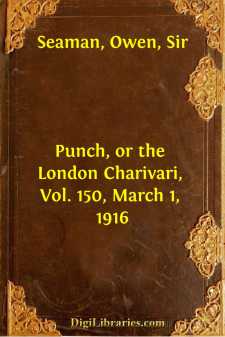Periodicals
- Art 27
- Children's periodicals 59
- Entertainment 5
- Food/Wine 2
- Games/Humor 455
- General 661
- Health 1
- History 53
- House/Home 1
- Regional 62
- Science/Nature 118
- Transportation 10
Periodicals Books
Sort by:
by:
Various
LETTERS TO ABSTRACTIONS. No. II.—TO SOCIAL AMBITION. DEAR SIR, OR MADAM, I had not intended to annoy you with another letter. But since I addressed you last week I have received one or two communications—not from you, bien entendu, for you are too wary to dispute the accuracy of what I have written; but from concrete human beings, who pretend to speak on your behalf, and deny that I have...
more...
by:
Various
HANOVER TERRACE, REGENT'S PARK. "The architectural spirit which has arisen in London since the late peace, and ramified from thence to every city and town of the empire, will present an era in our domestic history." Such is the opinion of an intelligent writer in a recent number of Brande's "Quarterly Journal;" and he goes on to describe the new erections in the Regent's...
more...
by:
Various
The Limoeiro, at Lisbon. Locks, bolts, and bars! what have we here?—a view of the Limoeiro, or common jail, at Lisbon, whose horrors, without the fear of Don Miguel in our hearts, we will endeavour to describe, though lightly—merely in outline,—since nothing can be more disagreeable than the filling in. For this purpose we might quote ourselves, i.e. one of our correspondents, or a host of...
more...
by:
Various
NOTES GRAVESEND BOATS. While so much has been said of coaches, in the early numbers of "Notes and Queries" and elsewhere, very little notice has been taken of another mode of conveyance which has now become very important. I think it may amuse some of your readers to compare a modern Gravesend boat and passage with the account given by Daniel Defoe, in the year 1724: and as it is contained in...
more...
by:
Various
THE WILD BEES' HOME.Wildbees of the wood are we;But our hive you must not see:Here behold our happy home,Where we labor, where we roam.Brooks that on their shining bosomsCatch the overhanging blossoms;Banks all bright with clustering flowers,—Here is where we pass our hours. Seldom on this solitudeDoes a girl or boy intrude;Few among you are awareWhat a home is ours, so fair!In the brook are...
more...
by:
Owen Seaman
April 5, 1916. A severe blizzard hit London last week, and Mr. Pemberton-Billing has since been heard to admit, however reluctantly, that there are other powers of the air. After more than five weeks the bubble blown by Sir James Dewar at the Royal Institution on February 17th has burst. A still larger bubble, blown by some eminent German scientists as long ago as August, 1914, is said to be on the...
more...
by:
Various
MEMOIR OF THOMAS CAMPBELL, ESQ. Of the subject of this memoir, it has been remarked, "that he has not, that we know of, written one line, which, dying, he could wish to blot." These few words will better illustrate the fitness of Mr. Campbell's portrait for our volume, than a laudatory memoir of many pages. He has not inaptly been styled the Tyrtaeus of modern English poetry, and one of...
more...
by:
Various
PURPLE PATCHES FROM LORD YORICK'S GREAT BOOK. (Special Review.) Lord Yorick's Reminiscences, just published by the house of Hussell, abound in genial anecdote, in which the "personal note" is lightly and gracefully struck, in welcome contrast to the stodgy political memoirs with which we have been surfeited of late. We append some extracts, culled at random from these jocund pages:—...
more...
by:
Owen Seaman
March 15, 1916. The Zeppelin which was "winged" while flying over Kent last week has not yet been found, and is believed to be still in hiding in the densely wooded country between Maidstone and Ashford. Confirmation of this report is supplied by a local farmer, who states that on three successive nights the cat's supper has been stolen from his scullery steps. This strange circumstance,...
more...
by:
Owen Seaman
March 1, 1916. The Volunteers have at last been recognised. There has been nothing like it since the great recognition-scene in Electra. The case has been reported of a Stepney child which has developed a disease of the brain, as the result of an air raid. Similar cases are said to have been observed in the neighbourhood of Fleet Street. It now transpires that the music of St. Paul's Cathedral...
more...


